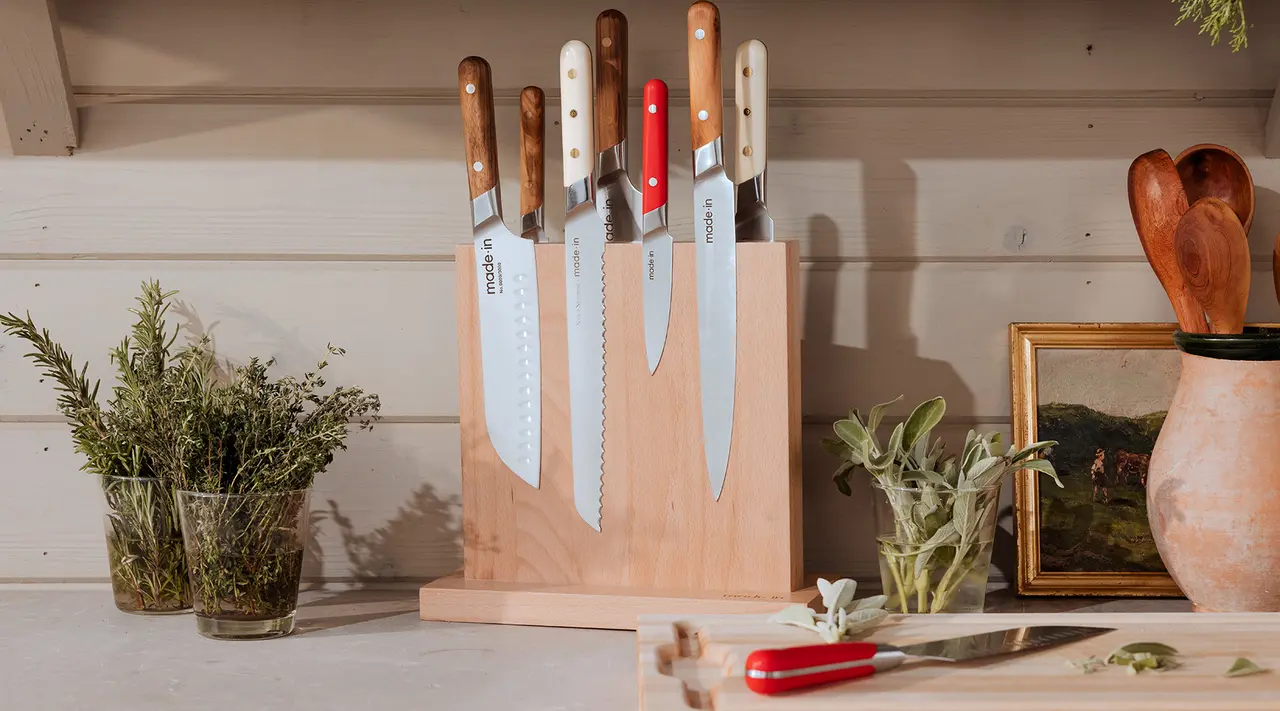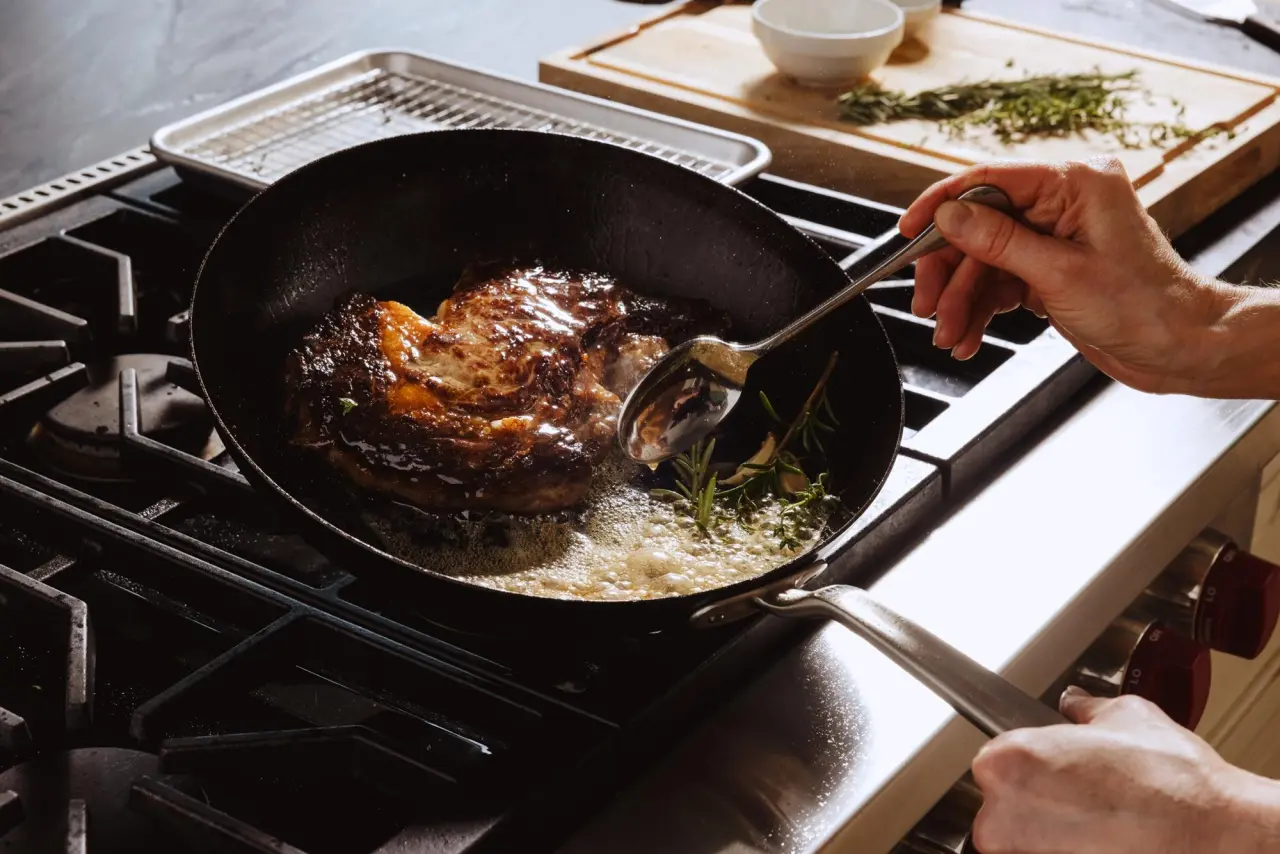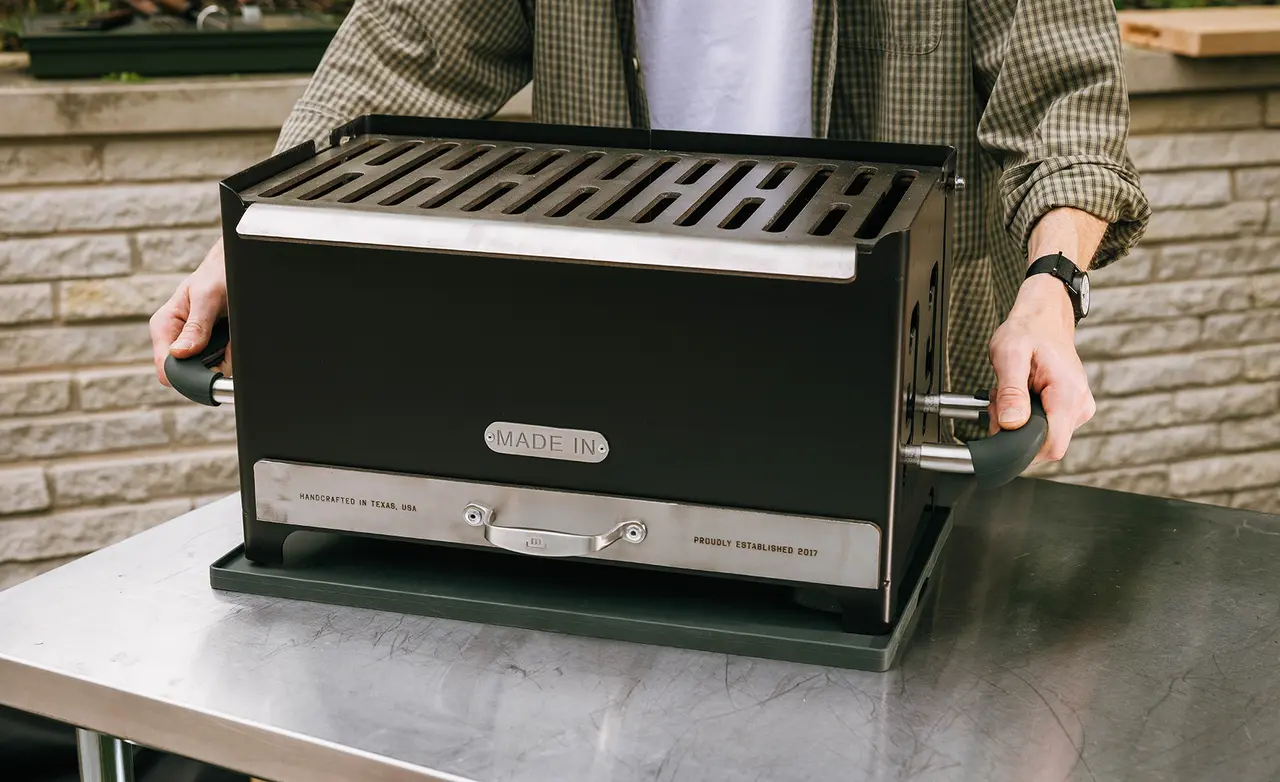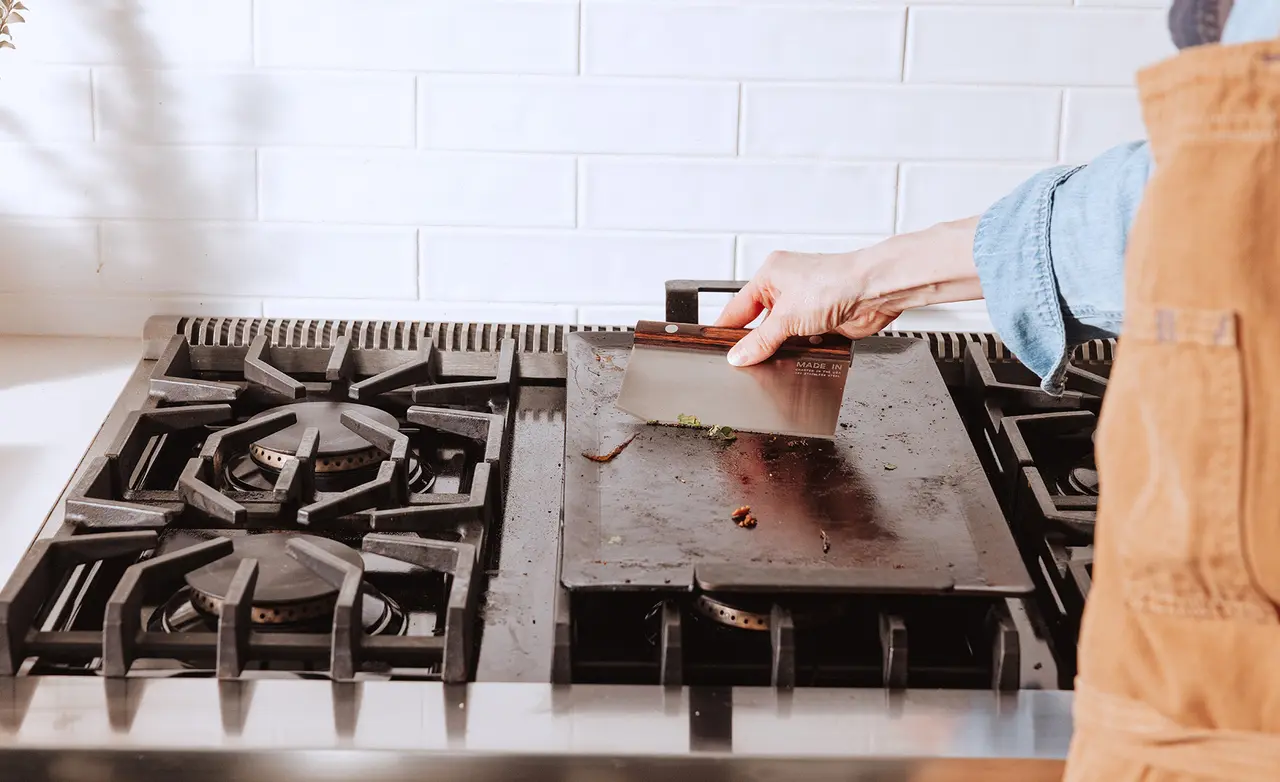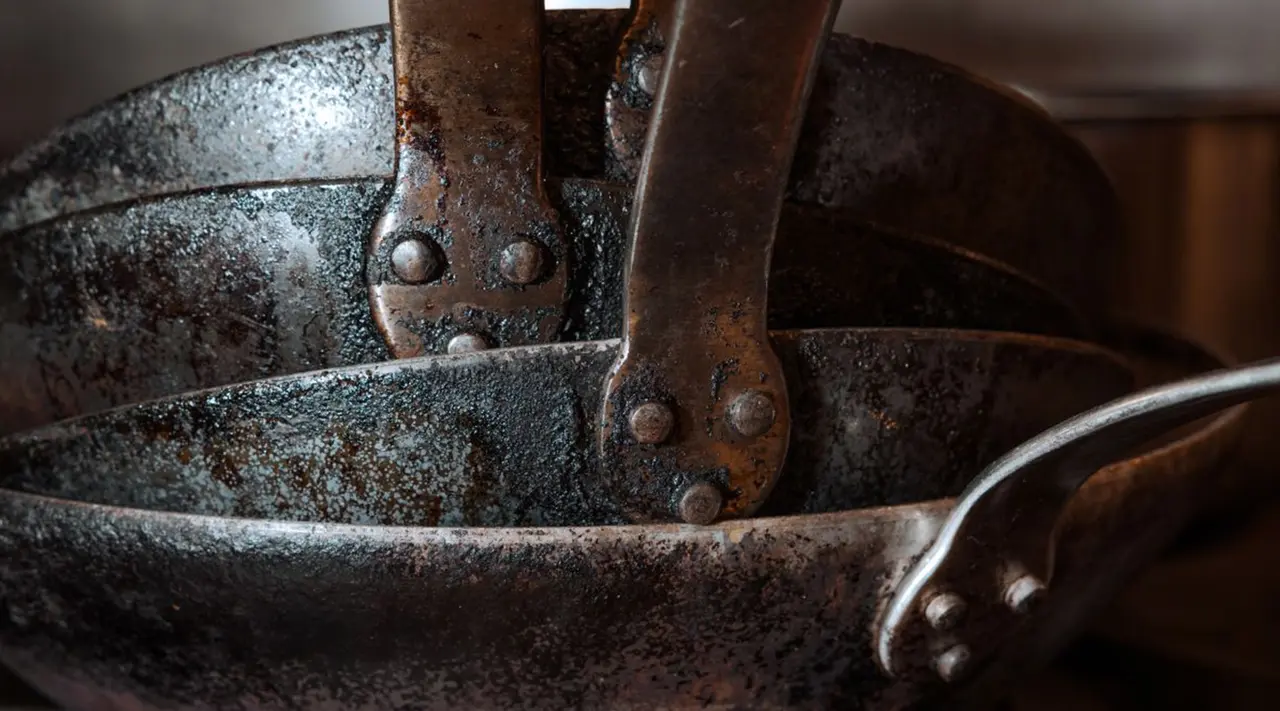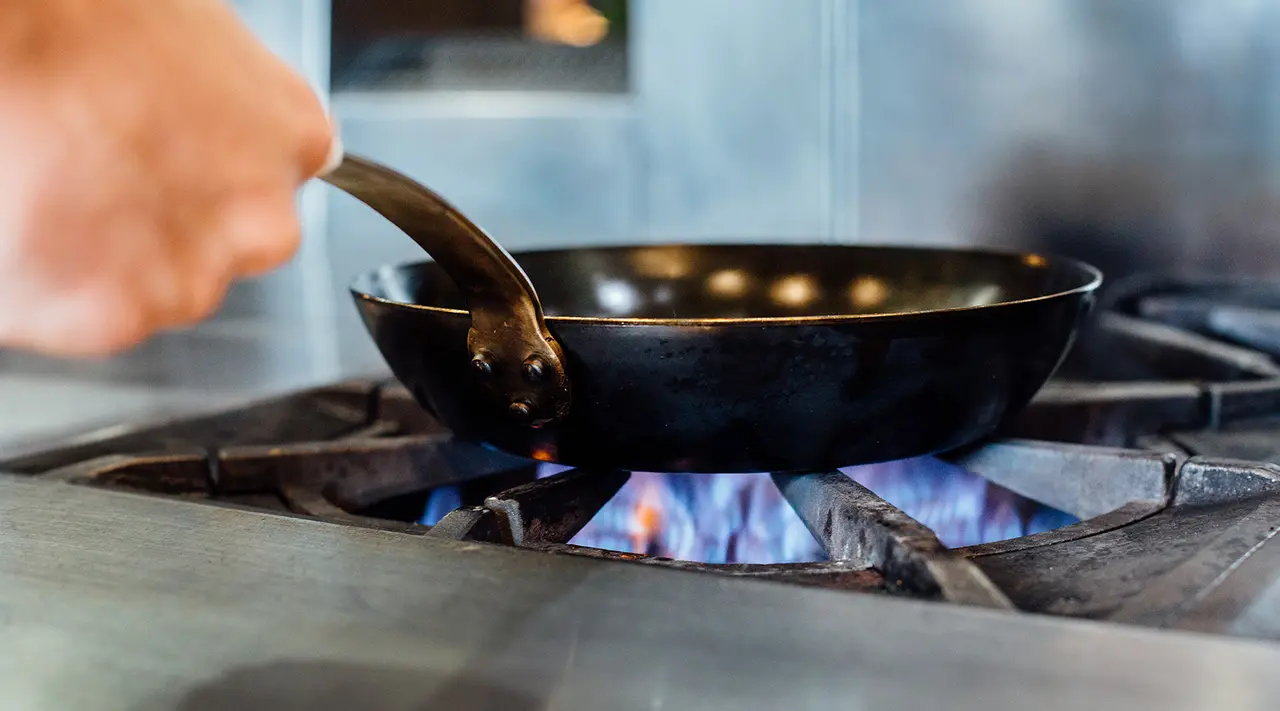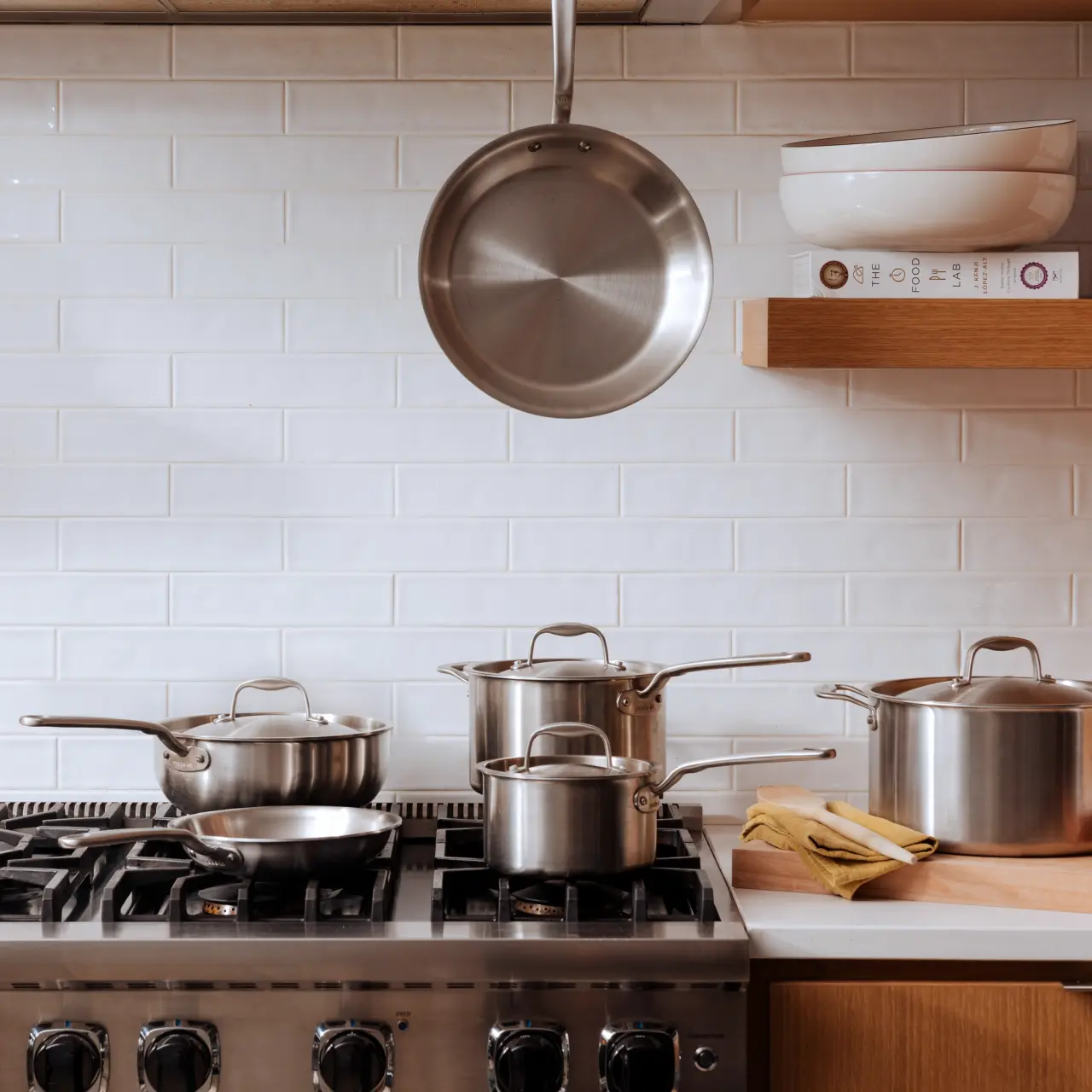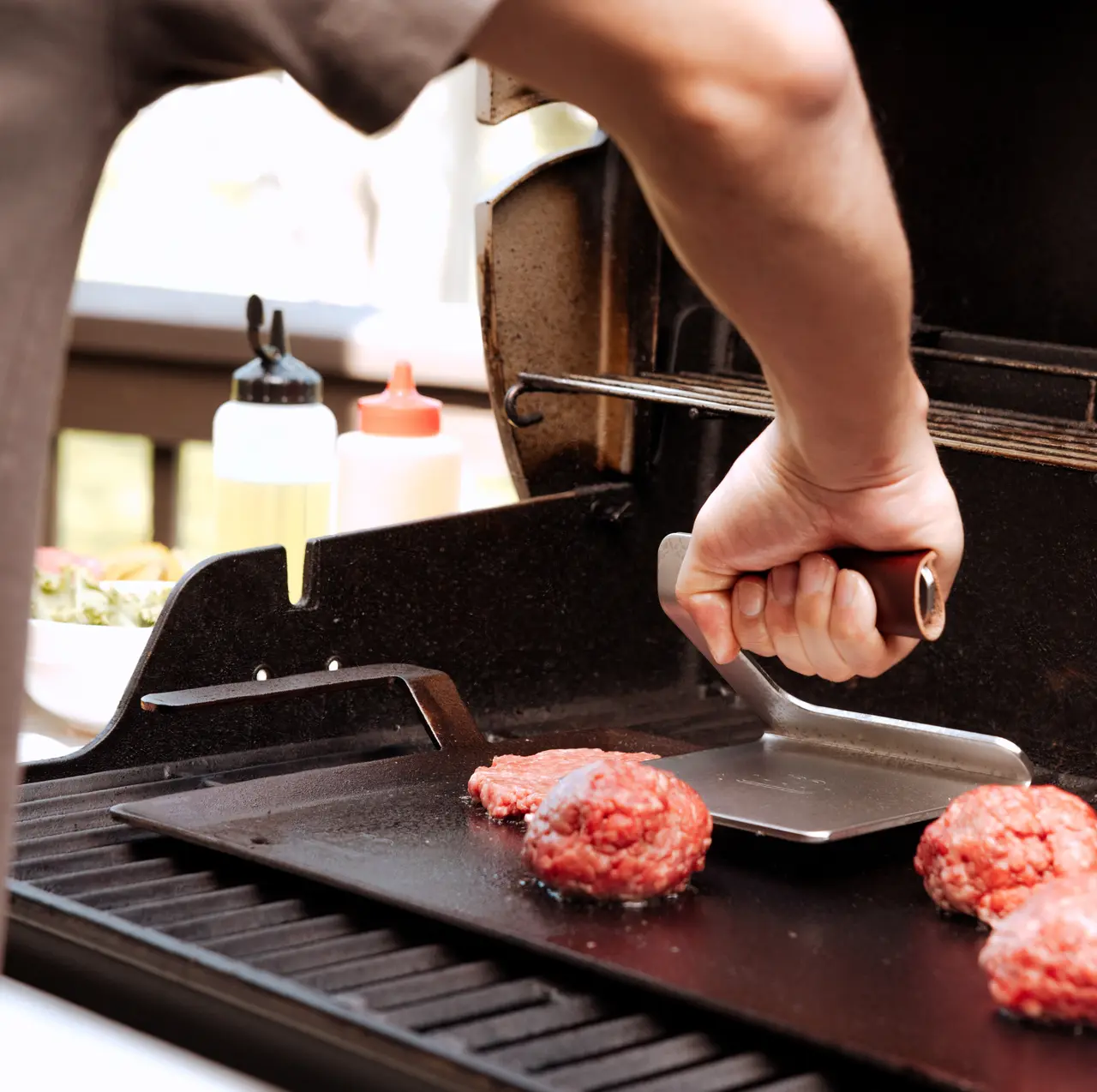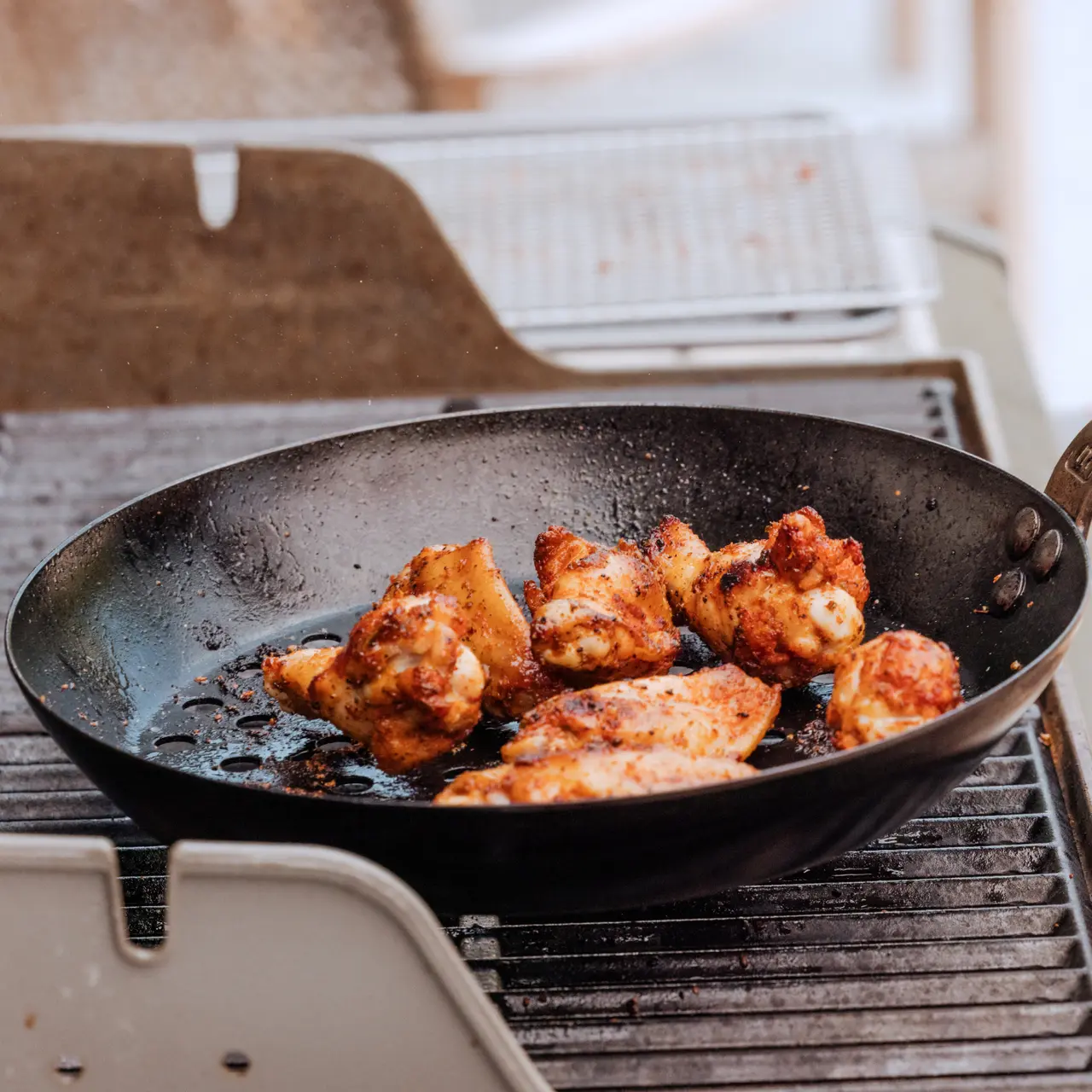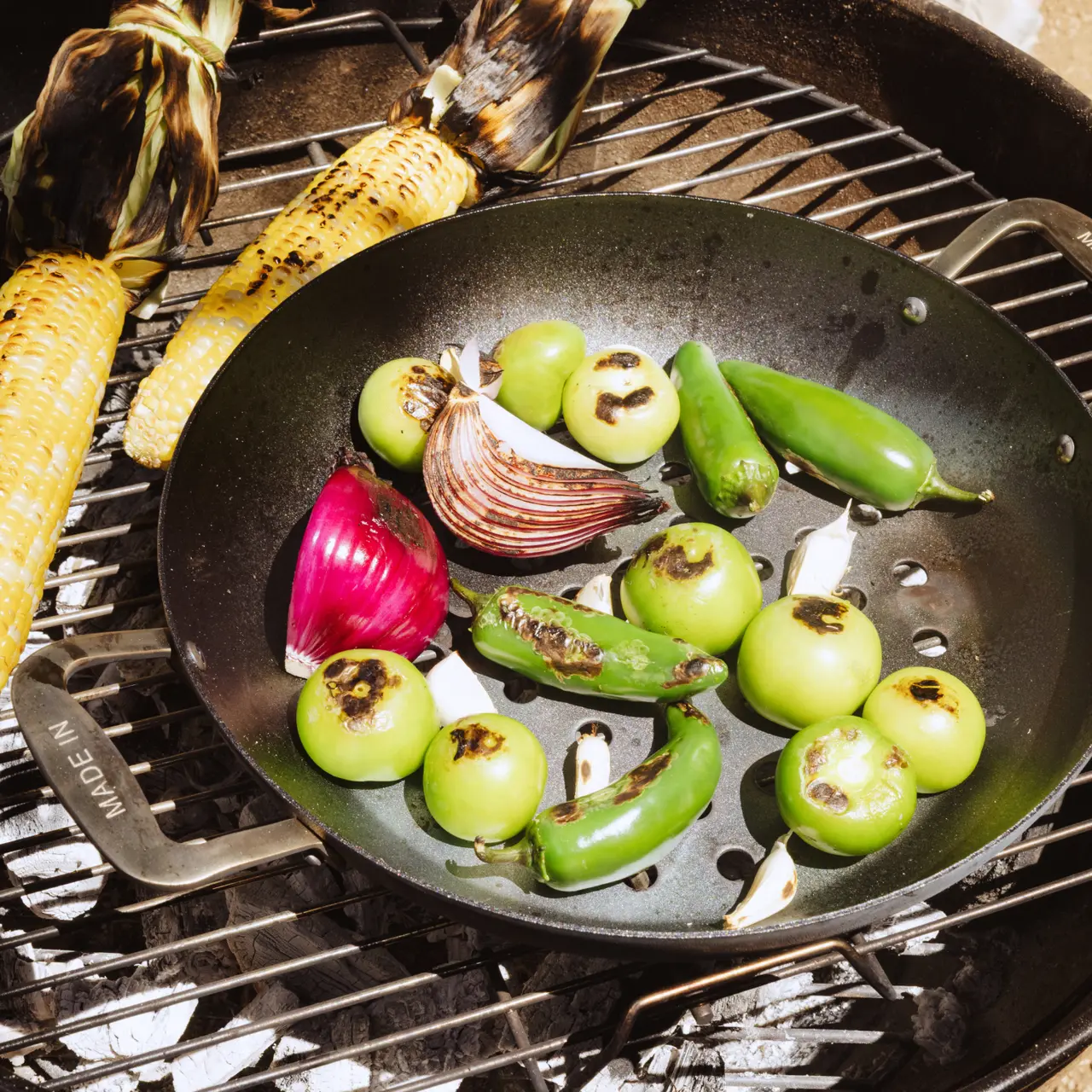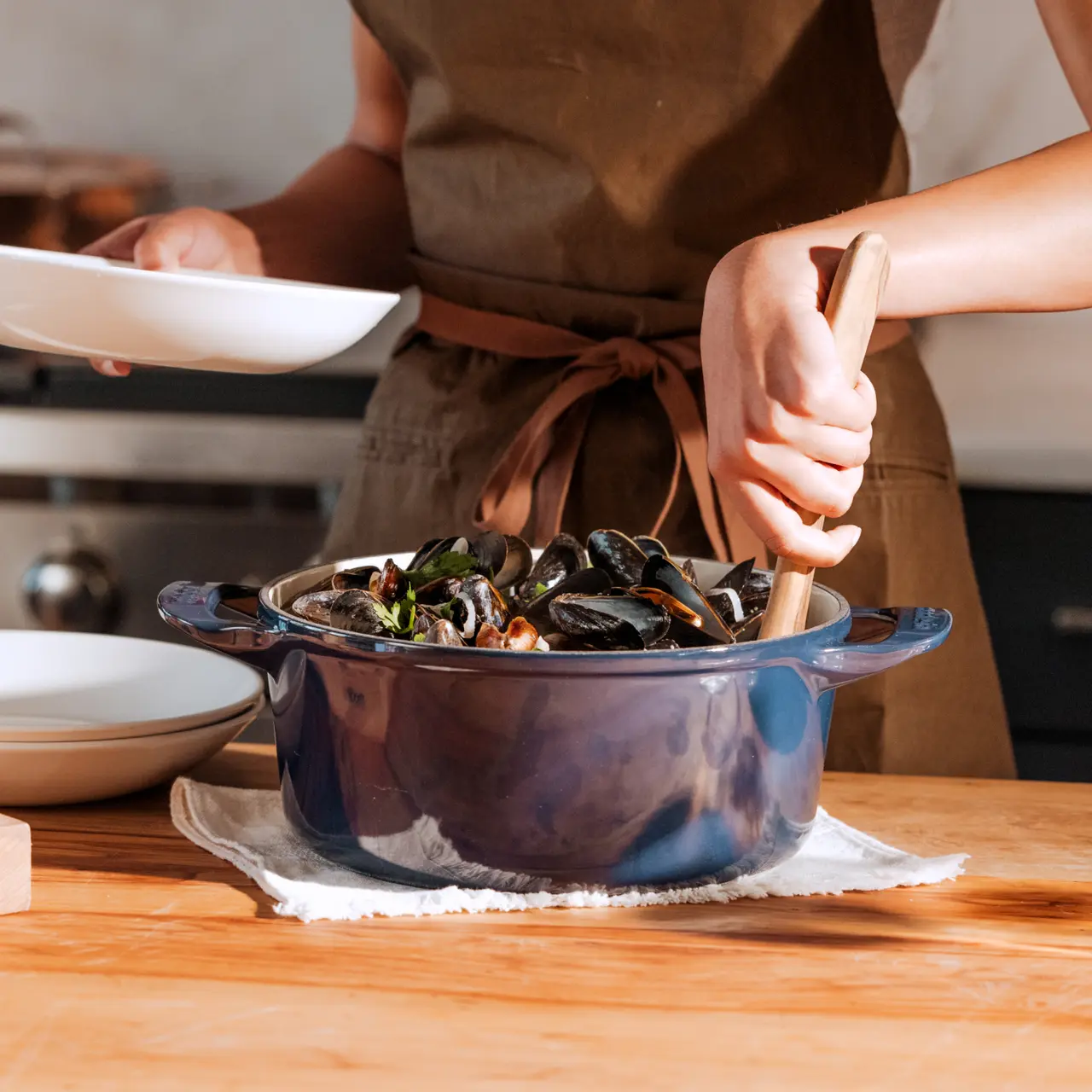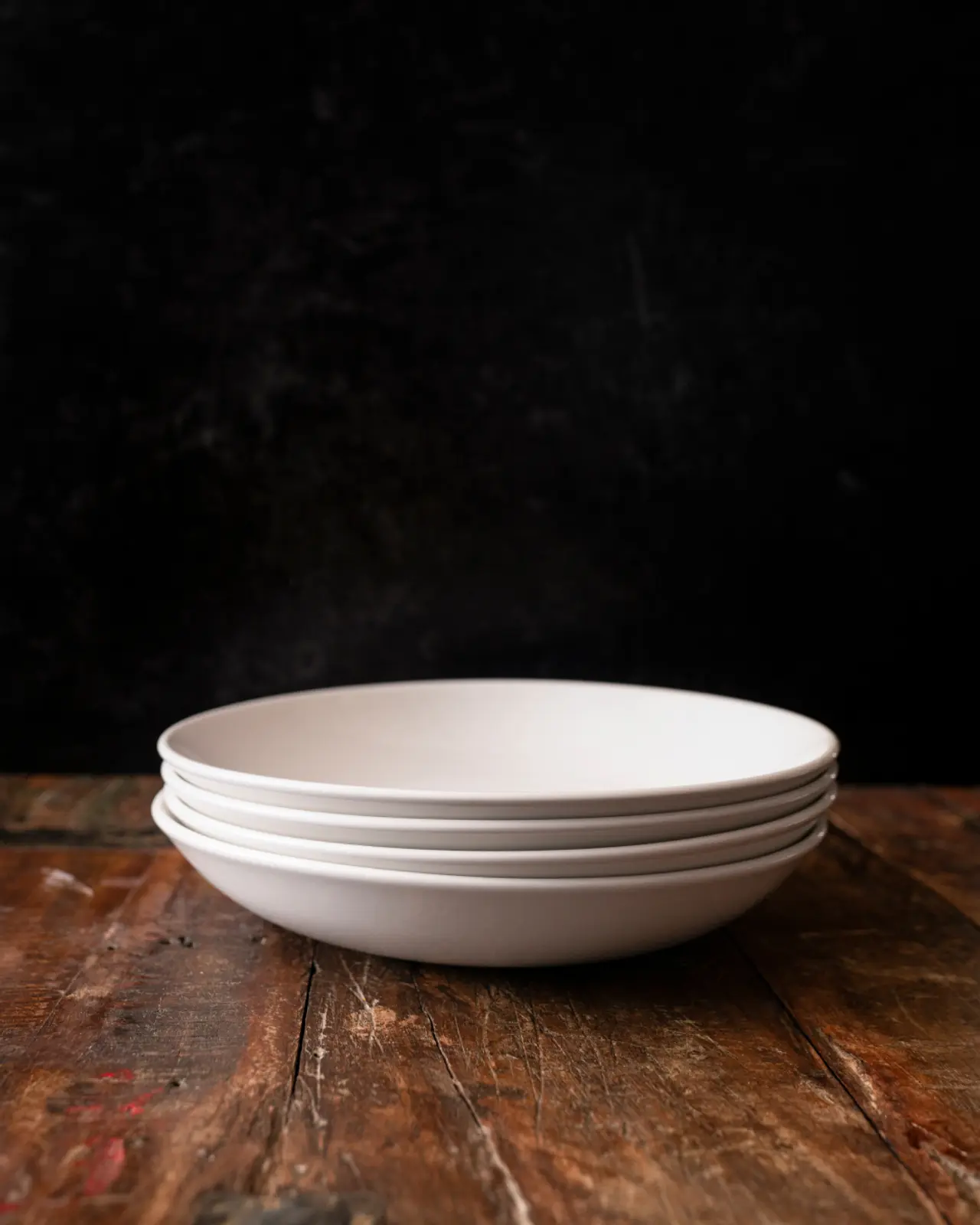Even the best-made blades have the potential to get rusty—especially knives made from carbon or Damascus steel, which have an especially high corrosion risk. The good news is, this doesn't mean your knife is ruined. You have several options to get rust off a knife and get the new-knife look again. Here, we offer a few of our favorite tips about how to get rust off a knife.
What Causes Knives to Rust?
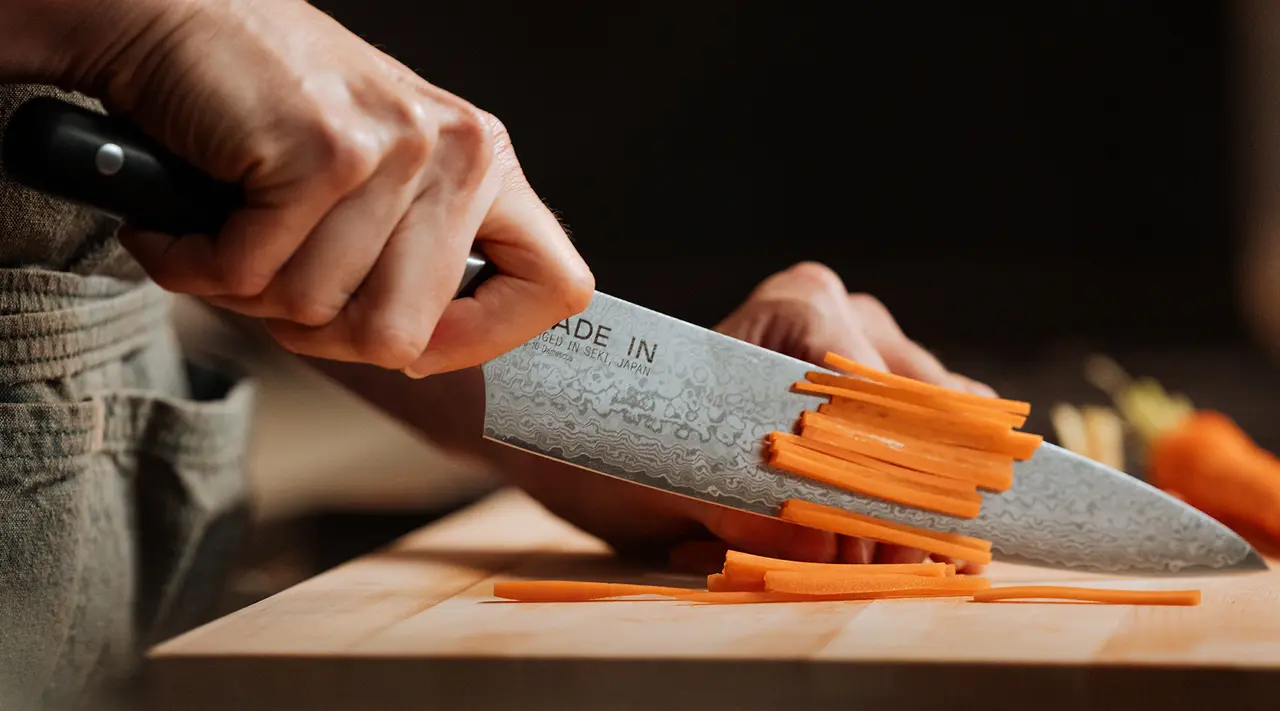
Rust is undiscerning and can form on just about any metal surface when exposed to acidic substances, like water.
Luckily though, the small rust spots that may have developed on your lesser-used knives are not dangerous at all. While it may not be as attractive as it once was, a knife sporting a small rust spot not on the cutting edge can still be safely used with food. That said, be careful of excessive rust or rust on the cutting edge, as this can begin to add impurities to your food (and can also eventually make the knife unusable).
How to Clean Rust Off Your Knives
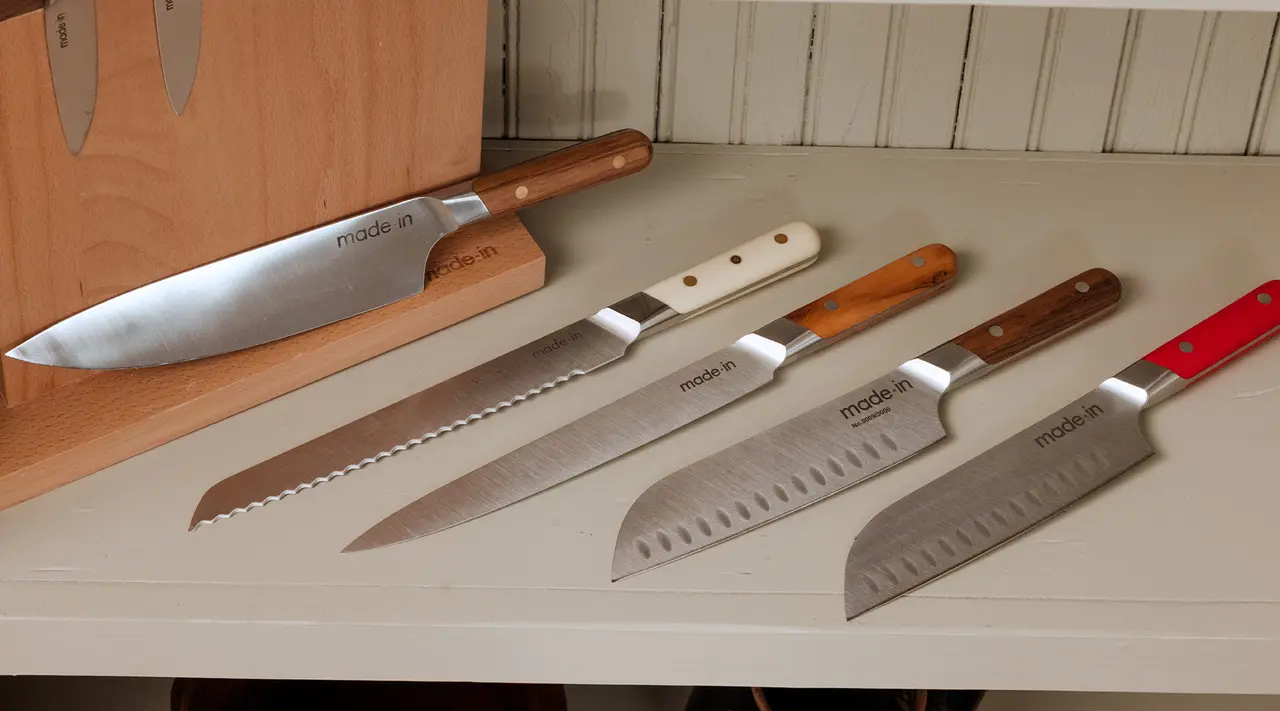
Fortunately, there are several different ways to remove rust stains from the blade of your knife. Here are a few of our tried and true rust removal methods.
1. The Vinegar Method
For this method, you will need a bowl, white vinegar, soft sponge, and dish soap.
- Submerge the entire blade of your knife in a glass of vinegar and soak for 15-30 minutes for minor rust, and overnight for more damaged blades.
- Remove from the vinegar and carefully scrub with a soft sponge to remove rust spots.
- Once the rust stains have been removed from the knife, wash with soap and water and dry thoroughly.
2. The Baking Soda Method
For this method, you’ll need baking soda, water, and a soft sponge.
- Mix water and baking soda into a thick paste and carefully spread the paste over the rust spots on the knife.
- Let the paste sit for at least an hour.
- Use soft sponge to scrub the knife to remove the rust stains.
- Rinse well with water and dry thoroughly.
3. The Lemon Method
For this method, you’ll want to have lemon, salt, and a soft sponge.
- Cover the rust stains with salt.
- Squeeze juice from a lemon on top of the salt.
- Let the mixture sit for about two hours.
- Carefully scrub the knife with the lemon rind and soft sponge.
- Rinse with water and dry thoroughly.
4. The Potato Method
For this method, gather a potato, salt or baking soda, and dish soap.
- Slice a potato in half.
- Cover one half of the cut potato with dish soap.
- Sprinkle salt or baking soda on top of the potato.
- Rub the rust spots with the potato to remove the stains.
- Rinse well and dry thoroughly.
How to Keep Your Knives From Rusting
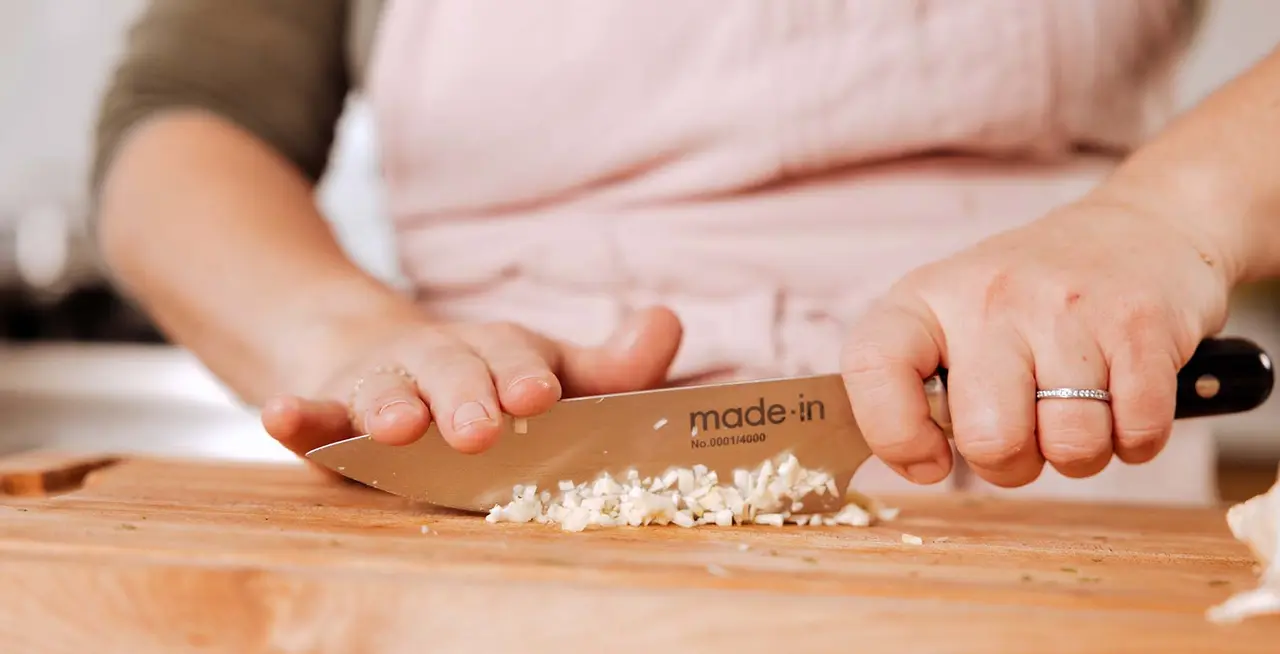
Once you have removed all the rust spots from your kitchen knives, it is important to keep them rust-free. To avoid rust spots on your favorite knives, this is what you need to do to care for and keep the blade of your knife in tip-top shape.
- Dry knives thoroughly immediately after washing.
- Store knives in a dry area that maintains low humidity.
- Apply a protective coating to prevent rust stains on knives by using a small amount of mineral oil on the knife twice a year, especially if you don't use the knife very often.
While it's unfortunate that even the best knives can get rust spots from time to time, knowing proper storage methods along with how to remove rust spots (and avoid future rust stains) is as easy as following a few simple steps. With proper care, you will no longer have to worry about unsightly rust spots on your knives and concentrate on the recipes you'll be creating with them instead.
Ready to Shop?
If you’re on the hunt for knives that can withstand just about anything you throw at them, be sure to check out our knife collection. From French-made, full tang and fully forged stainless steel to Japanese-crafted VG10 Damascus Steel, they're tough and stay sharp for longer.
